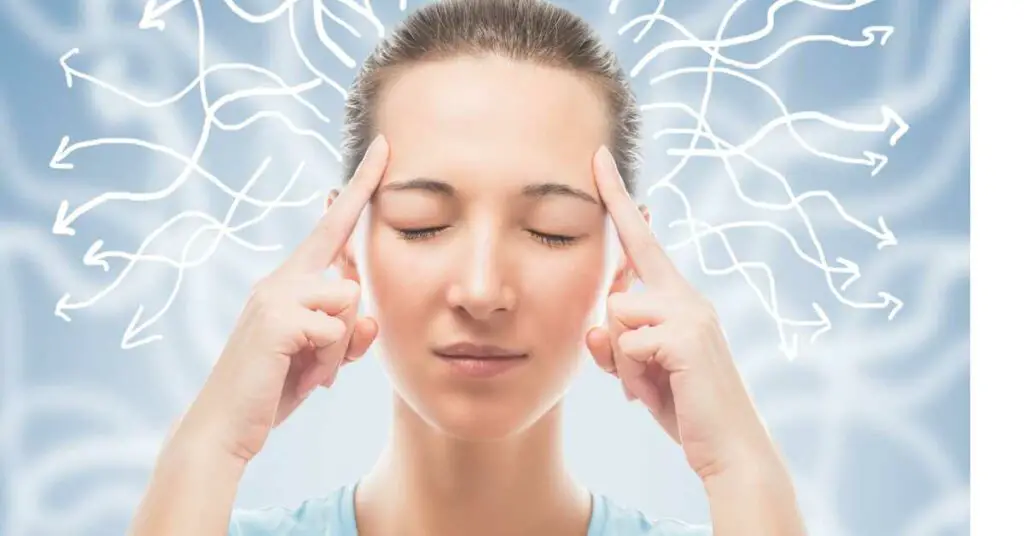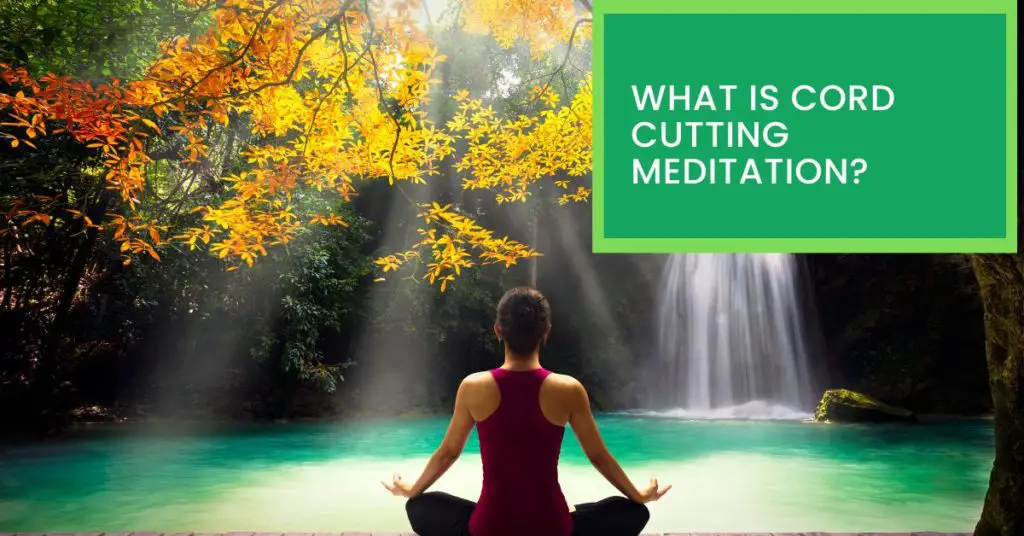Hey there, fellow seekers of inner peace! Today, we’re diving deep into the world of meditation and exploring whether it can help us connect with others. So, let’s start by defining what exactly meditation is.
Meditation is like a mental gym where we exercise our minds and emotions. It’s a practice of focusing your attention to achieve a clear and calm mental state.
It’s not just for monks or hippies, guys! Anyone can do it, even if you’re not a master yogi or don’t own a fancy meditation cushion.
you can connect with someone through meditation. By cultivating a sense of empathy, compassion, and mindfulness, meditation can help enhance our ability to connect with others on a deeper level.
Meditation has been around for thousands of years and has been practiced by people of different cultures and religions.
In fact, some of the greatest minds in history, like Albert Einstein and Steve Jobs, were known to practice meditation.
So, now that we know what meditation is and the benefits it can bring, let’s explore whether it can help us connect with others.
Stay tuned for the next section, where we’ll dive into the relationship between meditation and social connection. And don’t worry, we won’t be holding hands and singing kumbaya (unless you’re into that).

What is Meditation?
Welcome back, my fellow meditators! In the last section, we talked about the definition of meditation and the benefits it can bring to our mental health.
Now, let’s take a deeper dive into the different types of meditation and their potential for enhancing social connection.
- First up, we have focused attention meditation. This is where we focus our attention on a single point, like our breath or a mantra, and continuously bring our attention back to that point whenever our mind starts to wander.
This type of meditation can help improve our ability to concentrate and stay present at the moment, which can help in social interactions.
- Next, we have open monitoring meditation. This is where we observe our thoughts and emotions without judgment, allowing them to pass by like clouds in the sky.
This type of meditation can help us become more aware of our own inner experiences, which can help us better understand and connect with others.
- Transcendental meditation is another type of meditation that involves the repetition of a specific mantra.
This type of meditation is said to promote relaxation, reduce stress, and improve overall well-being.
- Lastly, we have loving-kindness meditation. This is where we focus on cultivating feelings of love, kindness, and compassion towards ourselves and others.
This type of meditation can help improve our ability to empathize and connect with others on a deeper level.
So, how exactly can these different types of meditation help us connect with others? Well, studies have shown that meditation can reduce feelings of social anxiety and promote more positive social interactions.
It can also help us become more aware of our own thoughts and emotions, which can help us better understand and relate to the thoughts and emotions of others.
In addition, meditation can improve our communication skills, emotional resilience, and conflict-resolution abilities, which are all essential for building strong and meaningful social connections.
In the next section, we’ll explore whether meditation can help us connect with others on a deeper, more spiritual level. Get ready to have your mind blown (in a good way)!
Can You Connect with Someone Through Meditation?
If you’ve ever felt that you’re not connecting with others, meditation might be the answer. We all want to feel understood and connected to those around us, but sometimes it’s easier said than done.
However, meditation has been shown to improve social interactions and increase empathy, which can help foster deeper connections.
Understanding the relationship between meditation and social connection
Meditation has been linked to improved social interactions and greater empathy. By practicing mindfulness and focusing on the present moment, we can become more aware of our own emotions and those of others.
This can help us better understand and connect with the people around us.
How meditation can improve social interactions?
When we meditate, we become more aware of our thoughts and emotions. This self-awareness can help us regulate our own emotions and respond more calmly in social situations.
Additionally, when we are more present and focused, we are better able to listen and engage in conversations.
The role of empathy in connecting with others
Empathy is the ability to understand and share the feelings of others. By practicing empathy through meditation, we can improve our ability to connect with others on an emotional level.
When we are more attuned to the emotions of others, we are better able to respond with kindness and understanding.
The science behind connecting with someone through meditation
Studies have shown that meditation can increase activity in the parts of the brain associated with empathy and emotional regulation.
This suggests that regular meditation practice can lead to improved social connections and emotional well-being.
Exploring telepathy and meditation
Telepathy is the ability to communicate thoughts or ideas without using traditional means of communication.
While the idea of telepathy might seem far-fetched, some believe that meditation can enhance our ability to connect with others on a deeper level.
The Concept of Telepathy and Its Potential
Telepathy has been studied by scientists and spiritual leaders alike, and some believe that it has the potential to transform the way we communicate and connect with others.
The Role of Meditation in Achieving Telepathy
Meditation has been shown to increase activity in the parts of the brain associated with intuition and perception. By quieting the mind and focusing on the present moment, we can become more open to the idea of telepathic communication.
Scientific Evidence for Telepathy and Meditation
While there is limited scientific evidence to support the idea of telepathy, some studies have shown that meditation can increase our ability to perceive and understand the thoughts and emotions of others. While it may not be telepathy in the traditional sense, this increased perception can lead to deeper connections and more meaningful interactions.
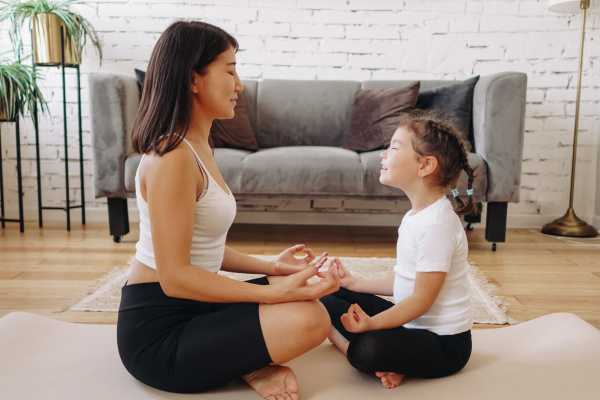
The Science Behind Meditation: Exploring the Brainwaves and Frequencies Associated with Meditation
If you’ve ever wondered why meditation is so effective, the answer lies in the science behind it. By studying the brainwaves and frequencies associated with meditation, scientists have been able to shed light on the powerful effects of this ancient practice.
Understanding the different brainwaves associated with meditation
There are several different types of brainwaves that can be observed during meditation, each with its own unique properties and benefits.
- Delta waves
These are the slowest brainwaves and are associated with deep sleep and unconsciousness.
They can also be observed during deep meditation and are thought to be connected with a state of oneness and transcendence.
- Theta waves
Theta waves are associated with light sleep and daydreaming. They can also be observed during deep meditation and are thought to be connected with creativity, intuition, and spiritual experiences.
- Alpha waves
These are the brainwaves most commonly associated with meditation. They are associated with relaxation, calmness, and a focused yet peaceful state of mind.
- Gamma waves
These are the fastest brainwaves and are associated with high levels of cognitive processing, including learning, problem-solving, and memory.
The Role of Frequencies in Meditation
In addition to brainwaves, there are also certain frequencies that are thought to be beneficial for meditation. Here are three of the most common:
- Binaural beats
Binaural beats are created by playing two slightly different frequencies in each ear. This creates a third frequency, which the brain then synchronizes with. Binaural beats are thought to be useful for relaxation, focus, and reducing anxiety.
- Isochronic tones
Isochronic tones are created by playing a tone at a specific frequency for a set amount of time, followed by silence for a set amount of time, and then repeating the process. Isochronic tones are thought to be useful for increasing focus, and creativity, and reducing stress.
- Monaural beats
Monaural beats are similar to binaural beats, but instead of playing two different frequencies, a single frequency is played in both ears. Monaural beats are thought to be useful for relaxation, focus, and reducing anxiety.
By understanding the different brainwaves and frequencies associated with meditation, we can gain a deeper appreciation for the power of this ancient practice.
Whether you’re looking to reduce stress and anxiety, improve focus and creativity, or simply find a greater sense of peace and calmness, there is a meditation technique that can help you achieve your goals.

How Meditation Affects Interpersonal Relationships
Let’s be real here – relationships are hard. Whether it’s with a romantic partner, family member, or friend, we all face challenges when it comes to communicating effectively and building strong connections with others.
But what if I told you that meditation could actually help improve your relationships? No, seriously! Let’s dive into how meditation affects interpersonal relationships.
The positive effects of meditation on relationships
Meditation has been shown to have a multitude of positive effects on relationships, including improved communication skills, increased emotional resilience, and better conflict resolution.
When you practice meditation regularly, you learn how to be more present and attentive in your interactions with others.
This can lead to better listening skills and a deeper understanding of the people in your life.
Additionally, meditation can help you develop emotional resilience, which is essential for maintaining healthy relationships. When you meditate, you learn how to observe your thoughts and emotions without getting caught up in them. This can help you stay calm and grounded during times of conflict or stress.
Finally, meditation can also help you develop better conflict-resolution skills. When you’re able to stay present and grounded in the midst of a disagreement, you’re more likely to approach the situation with empathy and understanding.
This can help de-escalate the situation and lead to a more peaceful resolution.
How meditation can improve communication and emotional resonance
So, how exactly does meditation help improve communication and emotional resonance in relationships? Let’s take a closer look.
- Mindful listening
One of the key skills you develop, when you meditate, is mindfulness – the ability to be present and fully engaged in the moment. When you apply this skill to your interactions with others, you become a more effective listener.
Instead of being distracted by your own thoughts or emotions, you’re able to give your full attention to the person speaking to you. This can lead to deeper, more meaningful conversations and a stronger sense of connection.
- Compassionate communication
Meditation can also help you develop more compassionate communication skills.
When you’re able to observe your own thoughts and emotions without judgment, you’re more likely to approach others with empathy and understanding. This can help you avoid misunderstandings and communicate more effectively.
- Empathetic understanding
Finally, meditation can help you develop a deeper sense of empathy and understanding for others.
When you’re able to observe your own emotions and reactions without getting caught up in them, you’re better able to understand and relate to the experiences of others. This can lead to a greater sense of connection and a more fulfilling relationship.
In conclusion, meditation can be an incredibly powerful tool for improving your relationships. By developing better communication skills, emotional resilience, and conflict resolution skills, you can build stronger connections with the people in your life.
So, next time you’re feeling frustrated with your partner or struggling to connect with a friend, why not give meditation a try? You might be surprised by the positive impact it can have on your relationships.
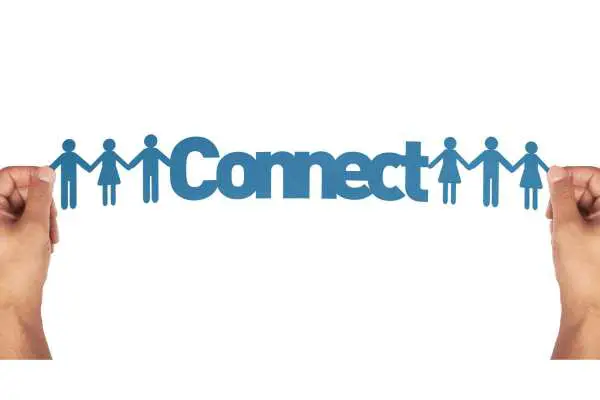
Overcoming Barriers to Connecting with Others Through Meditation
Let’s face it, as much as we all want to connect with others, sometimes there are barriers in the way. Fear, social anxiety, trust issues, and loneliness can all prevent us from forming meaningful connections with those around us.
Luckily, meditation can be a powerful tool for overcoming these barriers and building stronger social connections.
A. Addressing Fear and Social Anxiety
If you’re feeling anxious about social situations, meditation can help. Regular meditation practice has been shown to reduce anxiety and promote feelings of calmness and relaxation.
Try incorporating some deep breathing exercises into your meditation practice to help calm your nerves. You can also practice mindfulness in social situations by focusing on your breath and tuning in to your senses.
B. Dealing with Trust Issues
Trust is a vital component of any relationship, and if you’re struggling with trust issues, it can be tough to connect with others. However, meditation can help you develop a greater sense of self-awareness and emotional regulation, which can, in turn, help you build trust with others.
Try practicing loving-kindness meditation to cultivate feelings of compassion and empathy towards others. Remember that trust takes time to build, so be patient with yourself and others.
C. Coping with Loneliness
Loneliness is a common problem, and it can have a significant impact on our mental health. Fortunately, meditation can be a powerful tool for coping with feelings of loneliness.
By practicing mindfulness and self-compassion, you can learn to be more present at the moment and develop a greater sense of connection with yourself and others. Try incorporating a daily gratitude practice into your meditation routine to cultivate feelings of appreciation and connection.
In conclusion, while there may be barriers to connecting with others, meditation can be a powerful tool for overcoming these obstacles and building stronger social connections.
With regular practice, you can learn to cultivate feelings of empathy, compassion, and connection, and develop the skills you need to form meaningful relationships with those around you.
Tips for Practicing Meditation to Connect with Others
So, you’re sold on the idea of using meditation to connect with others? Great! Here are some tips to get you started:
- Setting intentions for social connection
In order to reap the benefits of meditation for social connection, it’s important to set your intention before you start meditating. This means taking a few moments to focus your mind on the idea of connecting with others.
You might repeat a mantra like “I am open to connecting with others” or “May I be surrounded by love and connection.” By setting this intention, you prime your mind to be more receptive to social connection.
- Incorporating mindfulness into daily life
Meditation doesn’t just happen on the cushion. You can bring a mindful approach to everything you do throughout the day. For example, try taking a few deep breaths before entering a social situation.
This can help you feel more grounded and centered. During conversations, try to really listen to the other person and be present with them. When you eat, pay attention to the taste and texture of your food. These small acts of mindfulness can help you stay connected with yourself and others throughout the day.
- Finding meditation groups and communities
Meditation doesn’t have to be a solitary practice. There are many meditation groups and communities that you can join, both in person and online. By meditating with others, you can amplify the social benefits of meditation.
You might even make some new friends! If you’re not sure where to start, try searching for meditation groups in your local area or joining an online meditation community. There are many resources available to help you find the right group for you.
In conclusion, meditation is a powerful tool for connecting with others. By setting your intention, incorporating mindfulness into your daily life, and finding meditation groups and communities, you can enhance your social connections and build deeper relationships. So, grab your cushion and get ready to connect!
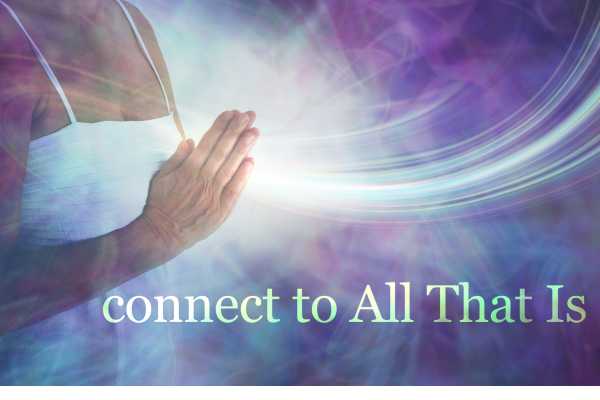
Conclusion
In conclusion, meditation is a powerful tool that can help us connect with others on a deeper level. Through various types of meditation, we can develop a greater sense of empathy and emotional resonance, which can improve our communication and relationships with those around us.
Meditation can also help us overcome barriers such as fear, social anxiety, and trust issues that may be preventing us from connecting with others.
By setting intentions, incorporating mindfulness into our daily lives, and finding meditation groups and communities, we can enhance our ability to connect with others and experience the many benefits of social connection.
As we continue to explore the potential of meditation for social change, we encourage everyone to incorporate meditation into their daily lives and experience the profound benefits of this ancient practice.
Whether you’re a seasoned meditator or new to the practice, there’s never been a better time to start exploring the power of meditation to connect with others and make a positive impact on the world around us.
Frequently Asked Questions
1. What happens when people meditate together?
Meditation is often seen as a solitary practice, with people retreating to quiet, peaceful spaces to focus their minds and calm their thoughts.
However, meditation can also be a group activity, with individuals coming together to meditate in a shared space. When people meditate together, the effects can be powerful and profound.
One of the primary benefits of meditating in a group is the sense of community and connection it fosters. By meditating together, individuals can create a shared experience and develop a sense of unity and belonging.
This can be especially important for individuals who may feel isolated or disconnected from others in their daily lives.
2. I’m really shy and anxious in social situations. Can meditation help me overcome this?
Yes, meditation can be a helpful tool for reducing social anxiety and increasing confidence in social situations.
By practicing mindfulness and self-compassion, you can learn to be more present and accepting in social situations, which can help you feel more at ease and connected to others.
3. How long do I need to meditate to see benefits for my social connections?
The amount of time it takes to see benefits from meditation will vary depending on the individual and the specific practice.
However, even just a few minutes of daily practice can have a positive impact on your social connections over time.


